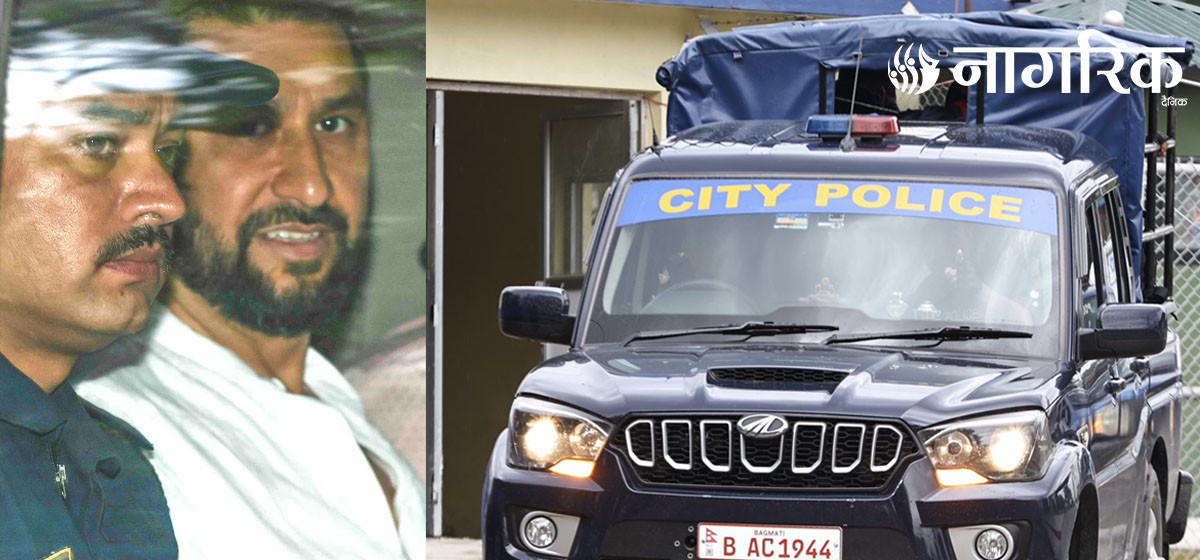KATHMANDU, Sep 13: Nakkhu Prison has denied taking responsibility for a letter that allowed former Home Minister and Rastriya Swatantra Party (RSP) chairman Rabi Lamichhane walk out of judicial custody during the Gen Z protest on September 9.
Lamichhane is supposed to be in custody until the final verdict in connection with the misappropriation of cooperative savings funds. On that fateful day, hundreds of his supporters had gathered outside the prison, forcing prison management to release him, citing a security threat to him inside.
Later, the Nakkhu Prison handed over Lamichhane to his wife, citing security concerns. He exited the facility in a vehicle, surrounded by a large crowd, waving to supporters on his way to the party office. Hundreds of the party cadres had gathered outside the prison on that day, while other Gen Z youngsters angered by the killing of 19 young protestors the previous day, were protesting the brutal act of state. Taking advantage of this situation, some elements are believed to have set ablaze the country’s judiciary, executive, and legislative buildings, as the police administration, fearing reprisal, haplessly watched the destruction.
Nakkhu prison calls everyone including Rabi Lamichhane to surre...

It is said that RSP had mobilized a large number of supporters from Chitwan, Lamichhane’s constituency and political stronghold, days before to pressure authorities for his release, knowing such a condition might arise.
Facing widespread criticism over his extrajudicial release, Lamichhane later made public a letter allegedly issued by the prison. The computer-printed letter, written on official prison letterhead and titled ‘To Whom It May Concern,’ stated that he was being released due to "special circumstances" in the country. It also mentioned that the decision was made based on "instructions from the Home Secretary,"—though no name was mentioned. The letter was signed by Satyaraj Joshi, head of Nakkhu Prison.
However, in a television interview on Friday morning, Joshi denied any responsibility for issuing the letter. “That letter doesn’t seem right. Even I don’t know how it happened,” he said.
The content of the letter appeared sympathetic to Lamichhane, stating that keeping him in custody would be an “injustice,” as the legal process would take a long time to conclude.
Interestingly, after Lamichhane’s release, a large protest erupted inside Nakkhu Jail. Hundreds of inmates rioted, overpowering the outnumbered security personnel and setting parts of the prison on fire. At least 1,300 prisoners escaped during the chaos. The news spread rapidly, causing ripple effects across prisons nationwide.
As a result, approximately 16,000 inmates escaped from various prisons across Nepal on September 9 and 10.
On Friday, the prison management urged all escapees to return voluntarily, warning of additional charges if they fail to do so. It also assured that their legal rights would be protected if they returned or contacted prison authorities.
Some notorious convicts have already been recaptured or returned. Former state minister Sanjay Shah, alias Takla—who escaped from Nakkhu—was apprehended in Kavre district. Similarly, Chudamani Upreti, alias Gore, accused in the 38-quintal gold smuggling case, returned to the Central Jail in Sundhara after initially escaping.



































